



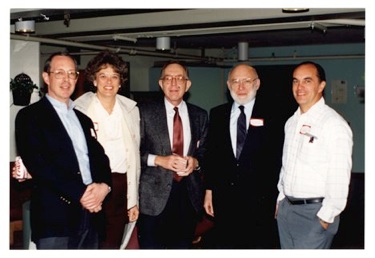
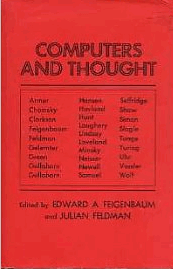
Original cover of Computers and Thought, 1963. Dr. Feigenbaum co-edited the 1963 influential compendium, and the reference Handbook on Artificial Intelligence in 1981. The International Joint Conferences on Artificial Intelligence “Computers and Thought” award were originally made from royalties of the book of the same name.
(graphic source: amazon.com)
Reunion of the DENDRAL team in 2006: Bruce Buchanan, Georgia Sutherland, Edward Feigenbaum, Joshua Lederberg, and Dennis Smith. Dr. Feigenbaum’s first major AI programming project was DENDRAL, one of the first chemical-analysis expert systems.
(Source: Joshua Lederberg)
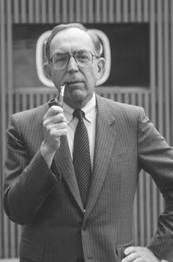

Dr. Feigenbaum received the Alan Turing Award (the highest award in the AI community) in 1994.
Program from the 1974 dedication of SUMEX-AIM (AI in Medicine). Dr. Feigenbaum co-founded SUMEX-AIM , which included the first large-scale AI-assisted Medicine projects with researchers across the nation. SUMEX-AIM was one of the first research projects to demonstrate the power of the ARPANET (predecessor of the Internet) to enhance scientific collaboration. In 1982 he founded the Stanford Knowledge Systems Laboratory for research into knowledge representation and automated reasoning.
(Source: Rutgers University Medical InfoHistory Archive)
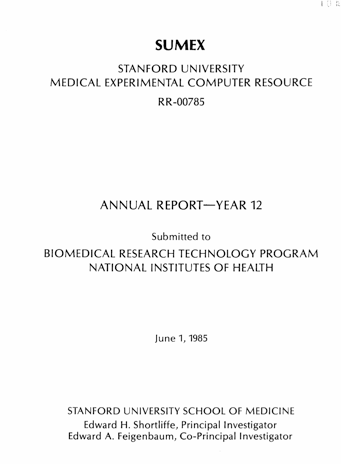
Cover page of the 12th report on SUMEX-AIM to the National Institutes of Health.
(Source: NIH)
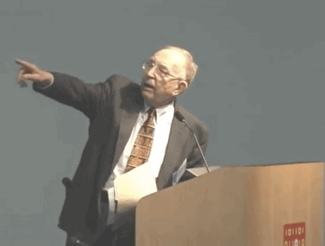
Dr. Feigenbaum discussing “The Future of the Book”, as part of American Academy of Arts and Sciences Symposium “The Impact of Information Technology on Society” in 2009.
(Source: MIT via yovisto.com)
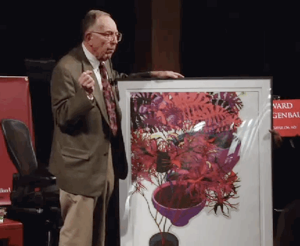
Dr. Feigenbaum uses a prop to describe the concept of “combinatorial creativity” at CMU in 2011.
(Source: CMU)